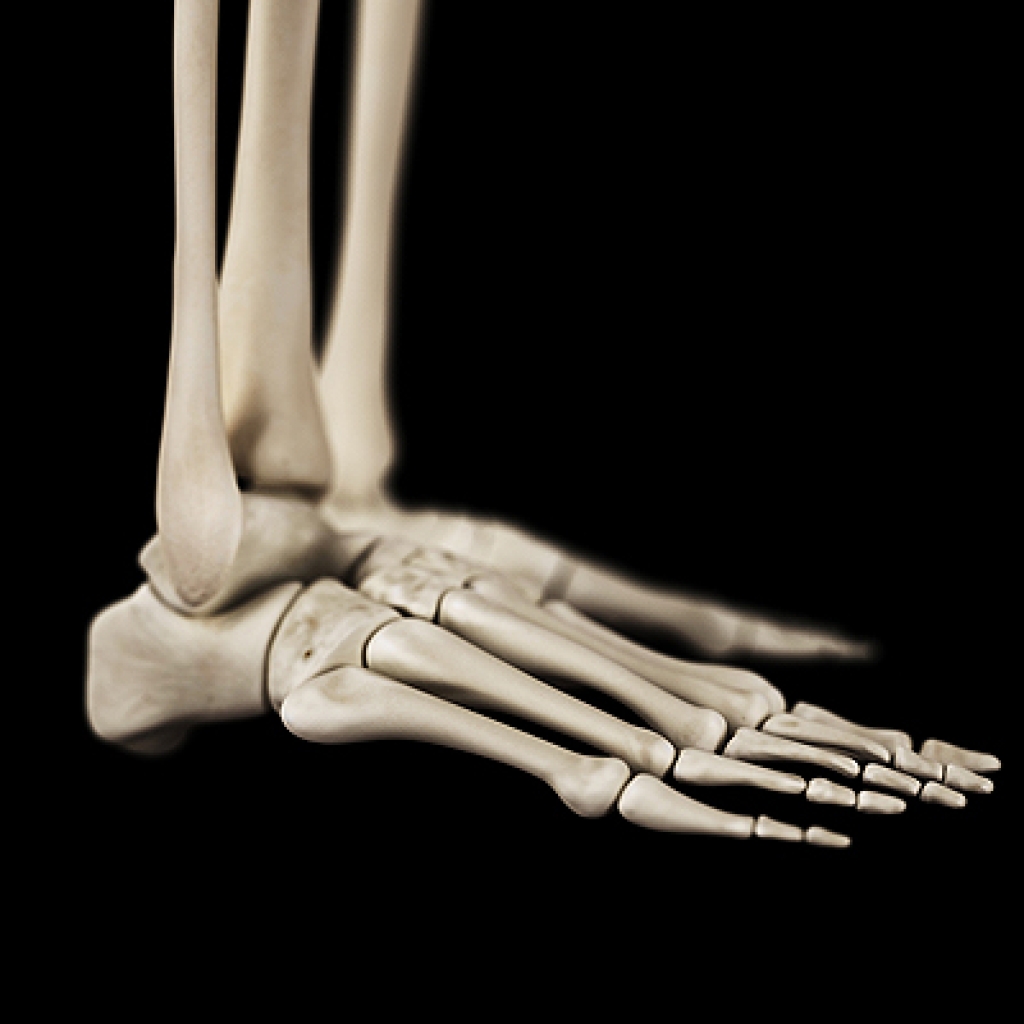
A hairline crack in a foot bone it's also known as a stress fracture. Frequently participating in running and jumping activities may cause stress fractures, which can happen from the repetitive force. A stress fracture can gradually occur, and many people choose to ignore the dull ache that accompanies this injury. When the pain becomes severe medical attention is often sought, and relief tactics are begun. Swelling may accompany a stress fracture, and walking can become difficult. A bone scan or an MRI can be performed to determine the extent of the fracture, as it may not be visible on an X-ray. Additionally, people who have osteoporosis or who consistently run on hard surfaces may be prone to getting a stress fracture. Treatment can begin by temporarily stopping the activity that caused the fracture, and elevating the affected foot may reduce the swelling. It may help to wear a protective boot that can provide the necessary stability as it heals. If you have a stress fracture of the foot, it is suggested that you confer with a podiatrist who can effectively diagnose and treat this condition.
Stress fractures occur when there is a tiny crack within a bone. To learn more, contact Shawn Echard, DPM from Laurel Podiatry LLC. Our practitioner can provide the care you need to keep you pain free and on your feet.
How Are They Caused?
Stress fractures are the result of repetitive force being placed on the bone. Since the lower leg and feet often carry most of the body’s weight, stress fractures are likely to occur in these areas. If you rush into a new exercise, you are more likely to develop a stress fracture since you are starting too much, too soon. Pain resulting from stress fractures may go unnoticed at first, however it may start to worsen over time.
Risk Factors
- Gender – They are more commonly found in women compared to men.
- Foot Problems – People with unusual arches in their feet are more likely to develop stress fractures.
- Certain Sports – Dancers, gymnasts, tennis players, runners, and basketball players are more likely to develop stress fractures.
- Lack of Nutrients – A lack of vitamin D and calcium may weaken the bones and make you more prone to stress fractures
- Weak Bones – Osteoporosis can weaken the bones therefore resulting in stress fractures
Stress fractures do not always heal properly, so it is important that you seek help from a podiatrist if you suspect you may have one. Ignoring your stress fracture may cause it to worsen, and you may develop chronic pain as well as additional fractures.
If you have any questions please contact our offices located in Greensburg and Somerset, PA . We offer the newest diagnostic and treatment technologies for all your foot and ankle needs.
